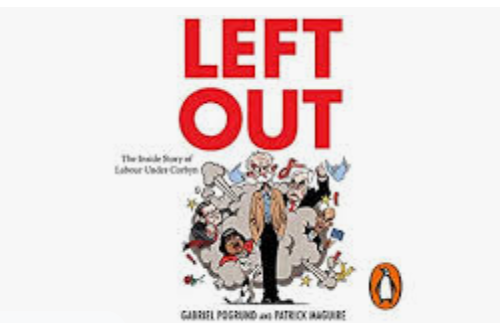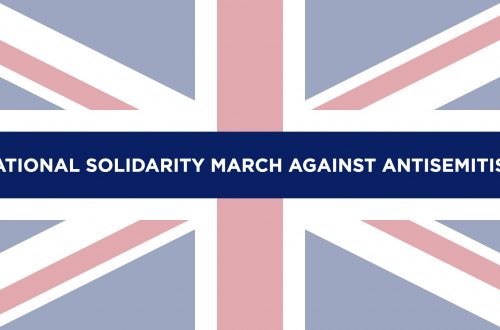This is a guest post by Ben Cohen
The forthcoming edition of Commentary magazine carries an essay I’ve written on the recent contortions of contemporary antisemitism. The trigger was an episode that HP readers are certainly familiar with, and one that, by rights, should have resulted in a major scandal.
Yet it didn’t.
I’m referring, of course, to Chicago University professor John Mearsheimer’s endorsement of the latest book by the imbecilic Jew-hater, Gilad Atzmon. And I argue that the general indifference to Mearsheimer’s decision underlines a disturbing reality: that Jews don’t own the definition of the word “antisemitism”. In truth, they never have.
“Anti-Semitism’s newfound respectability is not unprecedented. Indeed, the fact that anti-Semites have been given power over the definition of anti-Semitism reflects the very origins of the term. Coined in late 19-century Germany, anti-Semitism was not intended as a descriptor for a troubling social trend—like racism, or the more recent Islamophobia—but as the positive organizing principle of an emancipatory political movement.
While the Jews and their allies regard anti-Semites as propelled by hatred, anti-Semites regard themselves as a fraternity bound by a message of universalist love. “This book is above all a book for friends, a book that is written for those who love us,” wrote Edouard Drumont, one of the founders of France’s Ligue Antisemitique, and an especially shrill voice behind the false allegations of treason against Alfred Dreyfus, in his Le Testament d’un Antisemite. Atzmon expresses himself with similar pretensions: “When you talk about humanity, you talk about a universal system of values promoting love for one another.” Rather than being anti-moral, the moral sensibility of anti-Semitism resides in its presentation of the Jews (or “Jewishness” or “Judaism”) as the barrier to a society founded upon love. What seems at first glance to be a material battle is really a spiritual one.
With this understanding, we can better appreciate a rare modification in the nature of anti-Semitism in our own time. I say rare, because, as a framework for interpreting the world, anti-Semitism resists innovation. Charles Maurras, another French anti-Semite, took great delight in hawking a worldview that “enables everything to be arranged, smoothed over, and simplified.”
The modification rests upon a distinction between what I call bierkeller and bistro anti-Semitism. Bierkeller anti-Semitism—named for the beer halls frequented by the German Nazis—employs such means as violence, verbal abuse, commercial harassment, and advocacy of anti-Jewish legal measures. Certainly, the first and second generations of modern anti-Semitic publicists and intellectuals had no qualms about this sort of thuggery. Since the Second World War, though, this mode of anti-Semitism has waned sharply, along with the tendency to use the word anti-Semite as a positive means of political identification.
Bistro anti-Semitism, on the other hand, sits in a higher and outwardly more civilized realm, providing what left-wing activists would call a “safe space” to critically assess the global impact of Jewish cabals from Washington, D.C., to Jerusalem. Anyone who enters the bistro will encounter common themes. These include the depiction of Palestinians as the victims of a second Holocaust, the breaking of the silence supposedly imposed upon honest discussions of Jewish political and economic power, and the contention—offered by, among others, Mearsheimer’s co-author, Stephen Walt, of Harvard—that American Jewish government officials are more suspect than others because of a potential second loyalty to Israel.
I then engage in a little thought experiment:
Imagine, for a moment, that the Soviet Union was still in existence, still forbidding its Jews to emigrate, still barring them from sensitive jobs and higher education opportunities. Imagine, too, that the Soviets were still pumping out the propaganda of pamphleteers like Trofim Kichko—a clear precursor to Atzmon—who wrote, in Judaism and Zionism, of the connection between the Torah, the “morality of Judaism,” and Israeli “aggression.” Would a Jewish advocate, standing before a learned liberal audience, be able to categorize these as instances of anti-Semitism with the same ease that a Muslim civil-rights advocate could expect in an equivalent circumstance?
No, of course not. Actually, were he still alive, it would be entirely plausible that Kichko would be on a speaking tour of North American and European campuses. An army of professors, commentators, and student activists would line up to shield this progressive intellectual from the smear of anti-Semitism—aided, no doubt, by those self-consciously Jewish leftists whom Kichko reviled, just as Gilad Atzmon does.
My aim in writing this piece is to reclaim the antisemitism debate on the terms of those who still suffer from this ancient prejudice, together with that broader public who still understand the profound danger that antisemitism – whether open or clumsily disguised – represents. I end by saying:
As long as the adversaries and enemies of the Jews control the meaning of the term anti-Semitism, Jews will remain vulnerable to that most sacred of anti-Semitic calumnies: that they alone are the authors of their own misfortune.
All comments and reactions most welcome. You can read the essay in full here.


